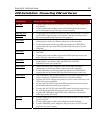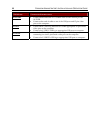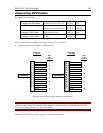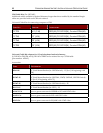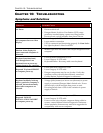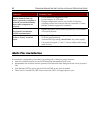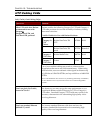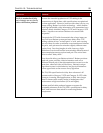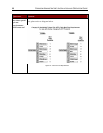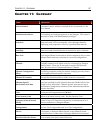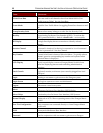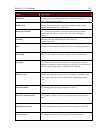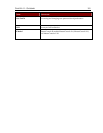
CHAPTER 10: TROUBLESHOOTING 95
QUESTION: ANSWER:
Cat 5e is standardized. Why
can’t I simply use any Cat 5e
cable with Raritan products?
Because the intended application of UTP cabling is the
transmission of digital data, cable specifications are optimized
for that application. However, because video data is by its very
nature analog, Raritan’s exclusive technology – which enables
such high-bandwidth video information to be transmitted over
relatively thinly-shielded Category 5 UTP and Category 6 UTP
cables – requires even stricter tolerances for certain cable
properties.
One particular UTP cable characteristic has a large impact on
how well your Raritan system performs: delay skew. UTP
cabling consists of four “twisted pairs” of wire, each carrying
one set of data. In order to minimize cross-interference between
the pairs, each pair must be twisted at slightly different rates
(twists/foot). Over long lengths of cable, however, slight
differences in twist rates results in measurably different rates of
data transmission among each twisted pair. The arrival time
delta is called “delay skew.”
How does this affect your Raritan solution? Raritan products
send red, green, and blue video information each over a
different twisted pair; if that information does not arrive at the
same time, observed video will be blurry. Raritan’s unique
algorithms correct for this behavior, but physical limitations
create upper limits to the success of any algorithm.
The TIA/EIA specification for delay skew tolerance is 45
nanoseconds for Category 5 UTP and Category 5e UTP cable.
However, in analog video applications, a delay skew longer
than 15 nanoseconds usually results in inadequate video
performance at high resolutions (XGA and higher).
Raritan-certified cable products happen to surpass the
acceptable tolerances of the TIA/EIA’s specification for delay
skew, and hence are best suited for connecting Raritan
components.



